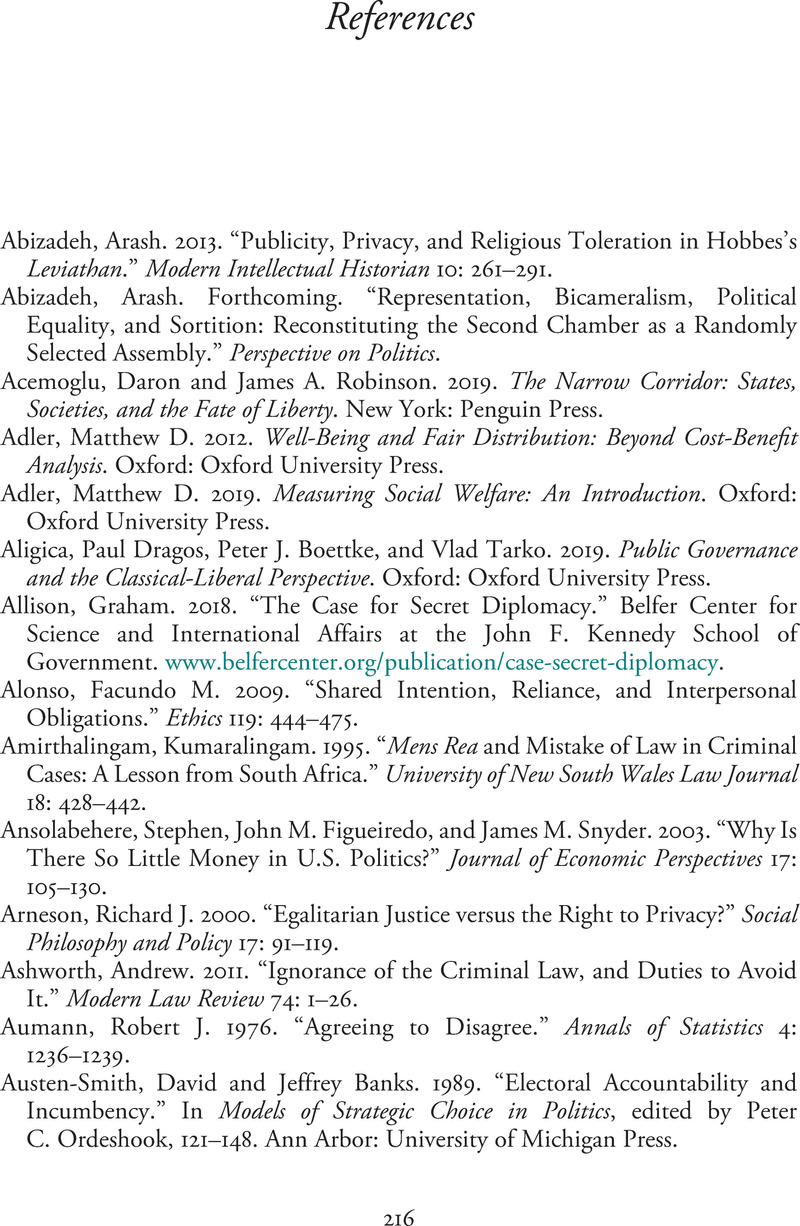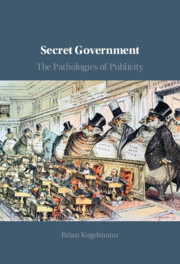Book contents
- Secret Government
- Secret Government
- Copyright page
- Dedication
- Contents
- Tables
- Acknowledgments
- Introduction
- Chapter 1 Publicity in History
- Chapter 2 Democracy Thrives in Darkness
- Chapter 3 Open versus Closed Deliberation
- Chapter 4 Publicity and the Rule of Law
- Chapter 5 Government House Moral Theory
- Chapter 6 Seeing Justice Done
- Chapter 7 Mutual Knowledge of Justice
- Chapter 8 Putting the Philosopher in the Model
- Conclusion
- References
- Index
- References
References
Published online by Cambridge University Press: 04 November 2021
- Secret Government
- Secret Government
- Copyright page
- Dedication
- Contents
- Tables
- Acknowledgments
- Introduction
- Chapter 1 Publicity in History
- Chapter 2 Democracy Thrives in Darkness
- Chapter 3 Open versus Closed Deliberation
- Chapter 4 Publicity and the Rule of Law
- Chapter 5 Government House Moral Theory
- Chapter 6 Seeing Justice Done
- Chapter 7 Mutual Knowledge of Justice
- Chapter 8 Putting the Philosopher in the Model
- Conclusion
- References
- Index
- References
Summary

- Type
- Chapter
- Information
- Secret GovernmentThe Pathologies of Publicity, pp. 216 - 237Publisher: Cambridge University PressPrint publication year: 2021

